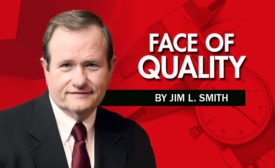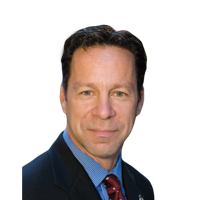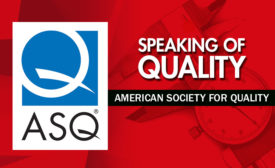Home » process control
Articles Tagged with ''process control''
Guest Column
No Apology Necessary
Error proofing will not solve all problems, but it's a good start.
October 4, 2019
The Real Quality Audit Benefit
Effective quality auditors are catalysts for change
September 15, 2019
Stay Out of the “PoliciesAndProcedures” Trap
Both policies and procedures must be understood.
August 15, 2019
Customer-Focused Environment
Organizations must extend their definition of customers.
August 15, 2019
Understanding Teamwork
Teams provide and important ingredient to the quality recipe.
July 15, 2019
Sponsored Content
Automotive transmission supplier Flexible Concepts guarantees process capability with Equator™ gauge
July 15, 2019
For a Robust Quality Environment There Has to Be Teamwork
Teamwork is more than launching a few teams.
June 15, 2019
Stay in the know with Quality’s comprehensive coverage of
the manufacturing and metrology industries.
eNewsletter | Website | eMagazine
JOIN TODAY!Copyright ©2024. All Rights Reserved BNP Media.
Design, CMS, Hosting & Web Development :: ePublishing






